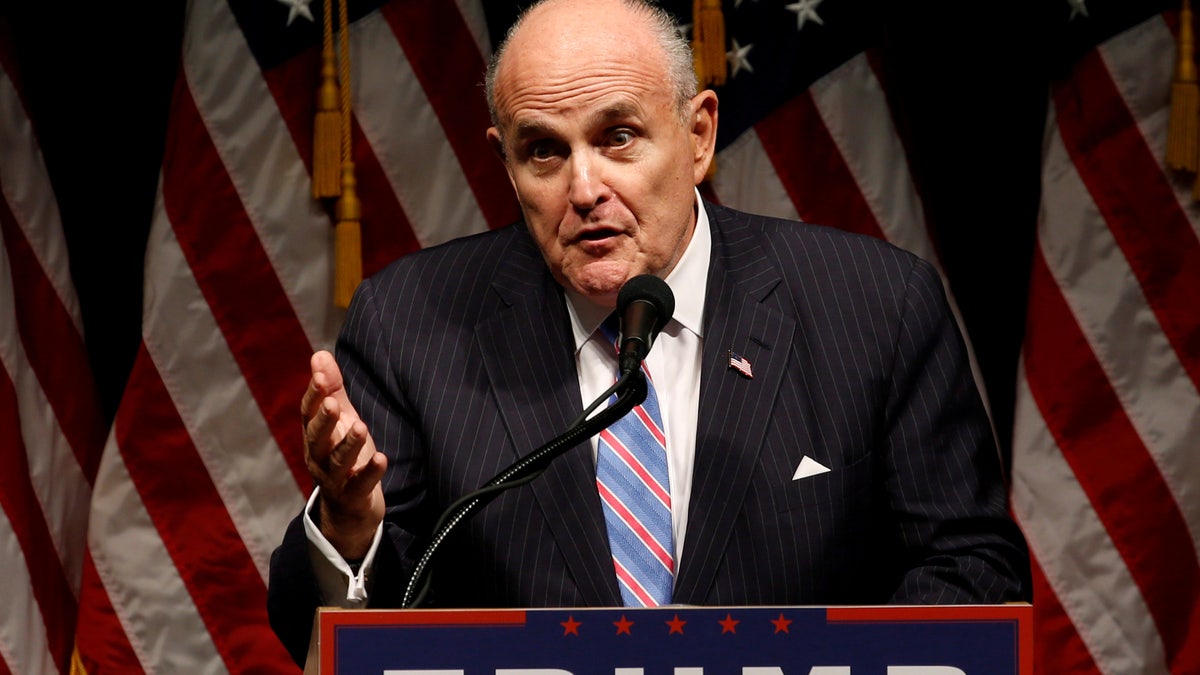
File photo: Former New York Mayor Rudy Giuliani delivers remarks before Donald Trump rallies with supporters in Council Bluffs, Iowa, U.S. September 28, 2016. (REUTERS/Jonathan Ernst/File Photo)
Former New York City Mayor Rudy Giuliani will serve as a cyber-security advisor to President-elect Donald Trump once he takes office, the Trump transition team announced Thursday.
Giuliani, who currently runs his own security consulting firm, will serve as a liaison between the Trump administration and private companies who are working to combat against cyber-security threats. Trump's announcement didn't specify a title for Giuliani, saying only that the former mayor will be "sharing his expertise and insight as a trusted friend concerning private sector cyber security problems."
The announcement did, however, hint at some of the threats Trump wants to address, including "hacking, intrusions, disruptions, manipulations, theft of data and identities, and securing information technology infrastructure."
Trump takes office as both private citizens and US companies have fallen victim to threats that were virtually unknown just a few years ago. Throughout 2016, multiple high-profile ransomware attacks targeted hospitals and other institutions, which often paid ransoms of tens of thousands of dollars each instead of pursuing even more costly data recovery methods.
More From PCmag
The explosive growth in devices that make up the Internet of Things (IoT) has also contributed to threats, including a distributed denial of service attack using infected baby cameras and other IoT devices last fall that took large portions of the US Internet infrastructure offline.
Even as large corporations hire consulting firms like Giuliani's to fight back, experts have warned that lax security practices—especially among IoT device manufacturers—make them too easy to hack.
Giuliani's ability to affect change in his new position is unclear, especially given Trump's general skepticism about the Internet and computers. Giuliani tends to take the opposite view. He sees cyber attacks as a key roadblock to technological advances that can have a positive societal impact, especially when it comes to healthcare.
"Our lack of securing these things is holding back a tremendously important advance that would be a great way to reduce healthcare costs," he told PCMag in 2012. "There is a tremendous societal cost and it comes about because we haven't developed security for the Internet—the cloud—the way we should."
This article originally appeared on PCMag.com.




















